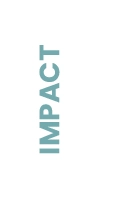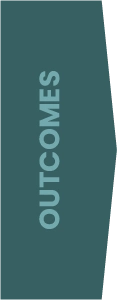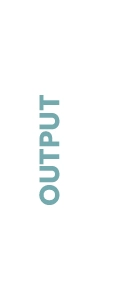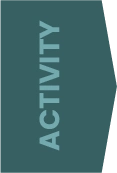PROJECT DURATION: MAY 2024 – JUNE 2026
Woodcross Resources is a leading integrated tin producer in Uganda. The company owns and operates mining assets in 3T space and is developing sustainable practices that align with its commitment to social and governance stewardship.
LuNa Smelter (EPRM Member) is a tin metal and tantalum concentrate producer in Rwanda. The Smelter has earned a robust reputation for its high ESG standards and premium refined tin quality. LuNa Smelter has achieved distinction as the first Responsible Minerals Assurance Process (RMAP) RMAP conformant tin smelter in Africa.
Luma Congo is a tin mineral exporter from DRC. The company’s main objective is to develop regional responsible sourcing in the Democratic Republic of Congo.
Siemens Energy (EPRM Strategic Partner) is a global leader in energy technology across the whole energy landscape. Company`s mission is to support companies and countries with what they need to reduce greenhouse gas emissions, energy reliable, affordable, and more sustainable. It also includes responsible sourcing.
Responsible Trade is a service provider for all levels of supply chain – traceability expertise. Responsible Trade is a boutique consultancy that supports a wide range of organizations to provide systems and controls that allow minerals and products from conflict affected and high-risk areas to be sourced responsibly and be traded on the global market.
Minespider is a service provider for all levels of supply chain – data digitalization and blockchain protocols development, supports mines, smelters, their customers and further suppliers to provide data for both provenance and due diligence risk assessment through applications that are powered by Minespider’s robust and secure blockchain platform.
International Women in Mining (EPRM Member) is a global NGO leading change for social sustainability in the extractives and resources sector.

Greater transparency among the tin supply chain stakeholders will create a path towards more structural cooperation between downstream and upstream, which is needed for the sustainable development of critical raw materials needed for the twin transition. Only a positive and longstanding impact at the upstream level will enable further global green transition. The unbreakable link will be built leveraging the unique role of the CAHRA midstream actors with the help of a digital medium-blockchain. Greater visibility of the upstream ASM will not only impact their traceability credentials but will open the market access for their production.

Development of the DD data-based and strong relationship with mines/supplier Full review of the targeted mining sites, their ESG impact, gaps identifications and register of potential projects for future collaboration, together with review and implementation of gender equality questions in the enhanced DD path.
Data digitalisation at the designated blockchain platform. Development of product passports and blockchain certificates for each cassiterite/tin metals shipment and the protocol for the downstream sector to apply for direct data access at value addition level.
Traceability expertise development at the upstream training focusing on traceability reporting, addressing and mitigating ESG risks. Dissemination of tools for the linked tin supply chain.

Development of the DD data-based and strong relationship with mines/supplier Full review of the targeted mining sites, their ESG impact, gaps identifications and register of potential projects for future collaboration, together with review and implementation of gender equality questions in the enhanced DD path.
Data digitalisation at the designated blockchain platform. Development of product passports and blockchain certificates for each cassiterite/tin metals shipment and the protocol for the downstream sector to apply for direct data access at value addition level.
Traceability expertise development at the upstream training focusing on traceability reporting, addressing and mitigating ESG risks. Dissemination of tools for the linked tin supply chain.

DATA
DIGITALIZATION
EDUCATION
AND CAPACITY BUILDING

The European Partnership for Responsible Minerals (EPRM) is a multi-stakeholder partnership that supports responsible production and sourcing of minerals from conflict-affected and high-risk areas and contributes to local development in and around mining communities.
Artisanal and small-scale mining (ASM) makes up the world’s largest mining workforce. Today, ASM is the primary and most of the time the only source of employment for 45 million people across 80 countries worldwide. 80-90% of ASM miners operate ‘informally’ and more than 134 million people work in industries related to the ASM sector (World Bank 2019). These numbers will only grow as a result of the increase in demand for minerals used in green energy technologies.
An important ambition of the EPRM is to support artisanal and small-scale mines to produce more responsibly and to enable them to get access to formal markets at local and international levels. By supporting projects in conflict-affected and high-risk areas, EPRM demonstrates that responsible production and sourcing in these areas contributes to sustainable development. More information on EPRM’s calls for proposals can be found on the EPRM-website.
EPRM offers relevant and accessible guidance for European mineral importers and other downstream companies on the EU Responsible Minerals Regulation through an easy-to-use online knowledge platform. This Due Diligence Hub provides tailored due diligence resources. Companies that want to learn how their due diligence practices align with the OECD requirements can also do a self-assessment with the Due Diligence Check. You can find the Due Diligence Hub and Due Diligence Check on the EPRM-website.
What distinguishes EPRM from other multistakeholder platforms is its capacity to fund innovative solutions through projects with a focus on artisanal and small-scale mining and the connection with supply chain actors such as mineral importers, smelters and refinerers. By promoting long-term cooperation between different actors in the supply chain, EPRM has a unique liaison-position enabling its members to discuss issues, request assistance and share information and best-practices.
What distinguishes EPRM from other multistakeholder platforms is its capacity to fund innovative solutions through projects with a focus on artisanal and small-scale mining and the connection with supply chain actors such as mineral importers, smelters and refinerers. By promoting long-term cooperation between different actors in the supply chain, EPRM has a unique liaison-position enabling its members to discuss issues, request assistance and share information and best-practices.